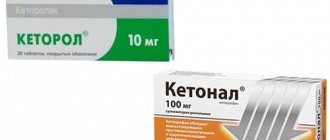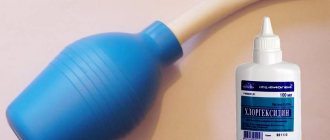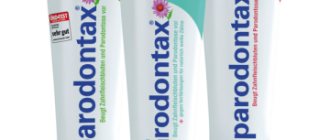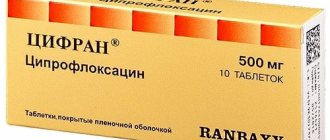Analgin is a widely used medication that has an affordable price. It belongs to the group of non-steroidal anti-inflammatory drugs. Its peculiarity is its pronounced analgesic and antipyretic properties.
The drug is produced in ampoules for intramuscular administration and in tablets. The second form is more popular. One tablet of the drug contains 250 or 500 mg of metamizole sodium. The active substance provides a strong analgesic, antipyretic and anti-inflammatory effect. It is quickly absorbed into the gastrointestinal tract and subsequently excreted by the kidneys.
Composition of the substance
The medicine is a strictly cylindrical tablet, designed with a chamfer and a score for convenient division into equal parts. Analgin tablets are usually dense white, sometimes with yellow splashes and a uniform yellowish tint.
The main active ingredient of the drug is metamizole sodium monohydrate. One tablet contains 500 mg. There are also tablets with a reduced dose of the active substance, equal to 250 mg.
In addition, the medicine contains a number of excipients, for example, potato starch, talc, calcium stearate and sodium lauryl sulfate.
The active components of the drug provide the drug with a pronounced analgesic, antipyretic and anti-inflammatory effect. Absorption of the components occurs in a short time through the gastrointestinal tract. After a certain period of time, it is excreted from the body by the kidneys without causing harm.
Indications and contraindications
The scope of application of Analgin, instructions for which are included in the pack, is very diverse. It is used for pain of various origins, including those associated with injuries and surgical interventions, as well as those caused by tumor processes.
The instructions for use of the drug say that Analgin reduces pain in chronic pain of various origins. It facilitates the course of the disease in cases where it is not yet possible to carry out other correct treatment.
The pronounced antipyretic function allows the drug to be used at high temperatures during infectious diseases. It is used when other antipyretic drugs have failed to cope with elevated temperatures.
| Indications | Contraindications |
| Fever due to an infectious disease with an inflammatory process | Hypersensitivity to the active component of the drug |
| Headache of various origins | Inhibition of hematopoiesis |
| Pain syndrome, mild or moderate | Kidney or liver failure |
| Neuralgia | Hereditary hemolytic anemia |
| Myalgia | Individual intolerance to acetylsalicylic acid |
| Biliary, intestinal or renal colic | Nasal polyps |
| Various injuries accompanied by pain and inflammation of varying intensity | Bronchial asthma caused by long-term use of acetylsalicylic acid |
| Radiculitis | Leukopenia |
| Algomenorrhea | Anemia |
| The period after surgery characterized by pain | Pregnancy, especially in the first trimester, as well as in the last 6 weeks before birth |
| Lactation period | |
| Children up to 8 years of age |
Most often, Analgin is used for headaches or toothaches, but its use is much wider than indicated in the instructions for the drug. In combination with antispasmodics, Analgin has shown high effectiveness in the fight against renal or biliary colic.
Analgin is strictly contraindicated for children.
There are not as many prohibitions on the use of the drug as there are for other similar drugs. However, you should be careful and not take the drug uncontrollably. It is important to take into account the patient’s condition and consult with a doctor to choose the right treatment regimen.
What does analgin help with?
The question of what analgin helps with is very common. The range of applications of this medicinal pain reliever is extremely wide. It can be used to relieve pain of various etiologies, in particular:
- After injury or surgery.
- Caused by spasms of the muscles of internal organs.
- Caused by the development of tumor processes.
As the instructions for Analgin indicate, it is indicated to alleviate the condition of patients with chronic pain of varying intensity. It allows you to stabilize the body’s condition when it is impossible to carry out other effective therapeutic measures. Analgin is used, the instructions for use indicate this, in order to lower high temperatures in infectious diseases, if this has not been achieved with other antipyretic drugs.
It is quite difficult to list exactly what analgin helps with due to the wide range of uses of the medicine. The most commonly taken tablets are for headaches and toothaches. It has proven its effectiveness in neuralgia and myalgia. In combination with antispasmodic drugs, analgin alleviates the patient's condition with renal and biliary colic.
Instructions for use
Independent and uncontrolled treatment with the drug is not allowed. Consultation with a doctor before using the tablets is required. This can be done at the MedArt clinic by making an appointment at a convenient time.
It is recommended to swallow each tablet whole without chewing it first. Be sure to drink plenty of water.
For acute pain, it is recommended to take a tablet with a dosage of 500 mg. If the intensity is pronounced, you can take two tablets at once, but keep in mind that no more than 3-4 tablets can be used per day. In this case, the course should not exceed five days from the start of treatment.
Analgin, the use of which is caused by spasms or fever, requires determining the exact dosage. As an antipyretic, tablets are taken in the smallest amount that is safe for the body, and also gives a reaction to high temperature. The course of treatment is no more than three days.
For children over 8 years old to 14 years old and weighing from 32 to 53 kg, a single dosage of the substance is 500 mg of the active component of the drug, that is, take one Analgin tablet. You can take up to four tablets per day, which is a multiple of 2000 mg of the substance.
Adult patients and adolescents over 15 years of age and weighing more than 53 kg can take 1-2 tablets at a time, which is a multiple of 1000 mg of the active ingredient. You are allowed to take no more than eight tablets per day, which is equal to 4000 mg of the active ingredient.
There are special conditions for elderly patients, as well as people suffering from kidney or liver failure. In this case, the minimum effective dosage of the drug is taken. High doses should be avoided, or the course of taking the drug should be significantly shortened.
Analgin, the dosage of which is determined by the nature of the disease, is effective and is often present in the medicine cabinet.
This is due to the difficulties of removing the breakdown products of the substance from the body. Since they are excreted by the kidneys, in such cases excretion will be slow or difficult, so the dosage is reduced to the minimum effective. During a long course of treatment, the doctor prescribes constant monitoring of the patient’s condition with regular leukocyte counts and blood monitoring.
Dosage
Only if it is impossible to take pills for any reason, intramuscular or intravenous injections are indicated. A single dose is 1-2 ml of a 50% solution of metamizole sodium. The daily dose should not exceed 4 ml.
To relieve pain, it is recommended to take a 500 mg tablet. For acute pain, the dose can be increased one-time to 2 tablets. You can take no more than 4 tablets per day, divided into 2-3 doses. The duration of therapy should not exceed 5 days. Analgin is taken as an antipyretic for no more than 3 days.
If you follow the dosage recommendations, problems with concentration and reaction speed are completely eliminated. Therefore, when using analgin to relieve pain, there are no restrictions on driving a car. Dangers arise only when large doses are used.
When using the drug, it should be taken into account that the toxic effects can be enhanced by other non-narcotic analgesics. It is also undesirable to use analgin simultaneously with tricyclic antidepressants and contraceptives. Barbiturates and phenylbutazone reduce the effectiveness of the drug, and sedatives and tranquilizers enhance it. The consumption of alcoholic beverages during pain relief with analgin is strictly prohibited.
Side effects
It is forbidden to use the drug for severe pain in the stomach, the origin of which has not been identified. Until a proper diagnosis is made, Analgin is not used in therapy. If the dosage and duration of the course of taking the tablets are not observed by the doctor, as well as when taking the drug under existing contraindications, allergic reactions may occur.
Most often, side effects are manifested by a skin rash, quite intense, as well as Quincke's edema. Less commonly observed are Lyell's and Stevens-Johnson syndromes, as well as anaphylactic shock. With long-term use of the drug as an anesthetic, changes occur in the blood formula.
Instructions for use of analgin highlight several side effects:
- risk of developing thrombocytopenia or leukopenia;
- bronchospasm attack;
- a strong decrease in blood pressure;
- malfunctions of the renal system.
When the first signs of deterioration in the patient’s condition appear, it is important to immediately stop taking the drug and report the incident to the treating doctor. To change painkillers, you need to visit a doctor to clarify the need to change the medication.
An overdose of a substance occurs in case of prolonged use of the drug, more than a week in a course in increased dosages, as a pain reliever. This may be manifested by nausea and vomiting, delirium, impaired consciousness, shortness of breath, and a sharp decrease in blood pressure.
If dangerous conditions of the body are determined, you should immediately consult a doctor and stop taking the drug. It is important to perform gastric lavage and also start using saline laxatives. They also increase their drinking regime and follow a diet. In particularly difficult cases, you will have to go to the hospital and undergo a hemodialysis procedure.
Pregnancy and lactation
Research on the effects on the body of pregnant women taking Analgin has not been carried out to a sufficient extent. As a result of animal studies, no serious disturbances in the functioning of the body were identified.
And yet, the drug can provoke serious perinatal problems, so taking the drug in the first and third trimester is strictly prohibited. The use of a substance in the second trimester occurs with extreme caution, under the supervision of a doctor, and only when the potential benefit to the mother is higher than the well-being of the fetus.
The drug is also not used during breastfeeding, as it easily passes into breast milk and can harm the baby. Feeding is allowed only 48 hours after completion of the drug.
The dosage of analgin for children is also prescribed by the doctor. Self-medication is not allowed in case of pathologies or fever in a child. Even half of a pill taken can have a detrimental effect on the body, so you should first undergo tests and get detailed advice from a qualified doctor. Only a doctor can prescribe medication in accordance with the nature of the disease.
Interaction with other drugs
In the case of simultaneous use of Analgin with cyclosporine, the level of the latter in the blood can be significantly reduced. It is important to inform your doctor about this; you may need to increase the dosage of the drug if you need to take a painkiller.
Severe hyporemia can occur when the substance is combined with chlorpromazine. Elderly patients are at high risk of developing hematological toxicity when used concomitantly with methotrexate.
Analgin should be used with acetylsalicylic acid and bupropion with great caution. The drug interacts and reduces the effectiveness of antihypertensive substances.
Precautionary measures
Particular care should be taken when treating patients who receive cytostatic drugs, as well as people with atopic bronchial asthma and hay fever.
If symptoms of sore throat, stomatitis, chills, difficulty swallowing or fever are detected, you must immediately stop taking the drug and consult a specialist.
For acute abdominal pain, Analgin should not be used until the exact diagnosis is determined. Also, with long-term use of the drug, it is necessary to monitor and check the flow of peripheral blood by counting leukocytes.
Analgin
When treating patients receiving cytotoxic drugs, metamizole sodium should only be taken under medical supervision.
Anaphylactic/anaphylactoid reactions
When choosing a method of drug administration, it should be taken into account that parenteral use is associated with a higher risk of anaphylactic/anaphylactoid reactions.
The following conditions cause an increased risk of developing hypersensitivity reactions to metamizole sodium:
- bronchial asthma induced by taking analgesics;
- intolerance to analgesics such as urticaria or angioedema;
- complete or incomplete combination of bronchial asthma, recurrent polyposis of the nose and paranasal sinuses and intolerance to acetylsalicylic acid or other non-steroidal anti-inflammatory drugs (including a history);
- chronic urticaria;
- alcohol intolerance (increased sensitivity to alcohol), against the background of which, even when taking a small amount of certain alcoholic beverages, patients experience sneezing, lacrimation and severe redness of the face. Alcohol intolerance may indicate a previously unidentified syndrome of bronchial asthma associated with analgesics (aspirin asthma);
- intolerance or hypersensitivity to dyes (for example, tartrazine) or to preservatives (for example, benzoates);
- a history of anaphylactic or other immunological reactions to other pyrazolones, pyrazolidines and other non-narcotic analgesics (see section “Contraindications”).
Before using the drug Analgin, it is necessary to conduct a thorough interview with the patient. If it is determined that the patient is at particular risk of developing anaphylactoid reactions, the drug should be prescribed only after carefully weighing the possible risks and expected benefits. If a decision is made to use the drug Analgin in such patients, strict medical monitoring of their condition will be required, and it is necessary to have means to provide them with emergency care in the event of the development of anaphylactic/anaphylactoid reactions.
In predisposed patients, anaphylactic shock may occur, so patients with bronchial asthma or atopy should be prescribed metamizole sodium with caution.
Severe skin reactions
Life-threatening skin reactions, such as Stevens-Johnson syndrome (SJS) and toxic epidermal necrolysis (TEN), have been described with the use of metamizole sodium. If symptoms of SJS and TEN (such as progressive skin rash, often with blistering or mucosal lesions) appear, treatment with metamizole sodium should be discontinued immediately. It is prohibited to ever repeat treatment with the drug.
Patients should be informed about the subjective and objective symptoms of these diseases. They should be carefully monitored for skin reactions, especially during the first weeks of treatment.
Agranulocytosis
Agranulocytosis, which develops during treatment with metamizole sodium, is of immunoallergic origin and lasts for at least one week. This reaction occurs very rarely and can be severe, life-threatening and even fatal. This reaction is not dose-related and may occur at any time during treatment.
All patients should be instructed to discontinue use of the drug and immediately consult their physician if the following subjective and objective symptoms possibly associated with neutropenia occur: fever, chills, sore throat, mouth ulcers. In case of development of neutropenia (number of neutrophils <1500 per mm3), it is necessary to immediately stop treatment, urgently perform a detailed general blood test and continue to monitor the blood composition until the corpuscles return to normal values.
Pancytopenia
If pancytopenia develops, treatment should be stopped immediately; complete blood count parameters should be monitored until they return to normal.
All patients should be instructed that if, during treatment with metamizole sodium, subjective or objective symptoms suggestive of pathological changes in the blood (for example, general malaise, infections, persistent fever, bruising, bleeding, pallor) appear, they should immediately seek medical attention. help.
Isolated hypotensive reactions
Administration of metamizole sodium may cause isolated hypotensive reactions. These reactions may be dose dependent and occur more often after parenteral administration.
Acute abdominal pain
It is unacceptable to use the drug Analgin to relieve acute abdominal pain (until the cause is determined).
Liver and kidney dysfunction
In patients with impaired liver and kidney function, Analgin should be used only after consulting a doctor, since in these patients the rate of elimination of the drug is reduced.
Impact on laboratory results
In patients treated with metamizole, changes in the results of laboratory tests performed using the Trinder test and similar tests (for example, analysis of serum creatinine, triglycerides, HDL cholesterol and uric acid concentrations) were recorded.
Where to buy, how much it costs
You can buy the drug at almost any pharmacy; it is available without a prescription. At the same time, the price of analgin is affordable for every patient. The cost of a pack of blisters containing 20 tablets of the substance is about 1 ruble.
Analgin is a medicine that was actively used by our grandmothers during the USSR period, when a variety of drugs similar to today’s was not available on the pharmaceutical market. Traditionally, today it is one of the most accessible and inexpensive medicines with a wide range of applications in various pathologies. It is prescribed to adults and children when severe spasms occur. Or taken urgently in case of increased body temperature.
Antispasmodics for headaches
A common cause of headaches is cerebral vasospasm. In this case, myotropic antispasmodics help relieve headaches:
- No-shpa (drotaverine);
- dibazole;
- papaverine;
- revalgin;
- dexalgin.
Neurotropic antispasmodics block the transmission of nerve impulses to smooth muscles, causing spasmodic vessels to dilate. Neurotropic vasodilators include:
- buscopan;
- scopolamine;
- aprofen;
- ganglefen;
- hyoscine;
- ganglefen;
- Arpenal.
Does spasmalgon help with headaches? The drug has a pronounced antispasmodic effect and eliminates headaches caused by vasospasm. Baralgin helps many patients against headaches. Mydocalm can help with headaches if the cause of the pain is muscle spasm.
Panadol belongs to the group of non-selective non-steroidal anti-inflammatory drugs. It relieves headaches thanks to the analgesic effect of the main active agent - paracetamol. The drug is effective for headaches caused by fever.
Reviews
You can find a huge number of positive reviews online, as this is a time-tested medicine. The use of analgin is due to the low price of packaging the substance, as well as the popularity of the drug, because our mothers and fathers used it when such a variety of drugs was not on the market.
An excellent product, inexpensive and effective. I only get relief from headaches with Analgin. I always have it in my first aid kit and recommend it to my family. It’s very nice that regardless of price increases, a box of tablets can be purchased for just a ruble.
Anna, 45 years old
In a big city, headaches and muscle pain are constant companions. I always save myself with Analgin when I can’t stand the spasms. I carry it with me and always have a supply in the car. The low price of the drug is considered a huge advantage.
Sergey, 32 years old
I have been using Analgin for many years and don’t even look towards newfangled expensive products. He saves 100%. An excellent product that the whole family uses.
Valeria, 62 years old
There are practically no negative reviews of Analgin. Users consider the only disadvantage to be inconvenience in swallowing and poor dissolution of the tablets. In this case, it is recommended to simply drink it with plenty of liquid so that it gets into the gastrointestinal tract more quickly.
Treating headaches with NSAIDs
For tension headaches and migraines, neurologists prefer nonsteroidal anti-inflammatory drugs (NSAIDs). Helps with headaches:
- acetylsalicylic acid (aspirin) – the maximum single dose is 2 tablets, but not more than six tablets 3-4 times a day;
- naproxen – you can take 2 tablets at a time, but no more than four tablets 2 times a day.
- diclofenac - take one tablet 3 times a day;
- indomethacin - can be taken one tablet 3 times a day or used in the form of rectal suppositories;
- Ketonal, ketanov, ketorol should be taken orally no more than 2 tablets at a time, 3-4 times a day.
According to reviews, Nurofen and Nimesil help well with headaches. Doctors recommend taking all drugs in this group after meals with plenty of water. The effect develops 0.5-2 hours after taking the drug. The duration of the analgesic effect is 4-6 hours. The tablets can be taken independently for no more than 4 days. Dexalgin acts quickly and effectively for headaches.









